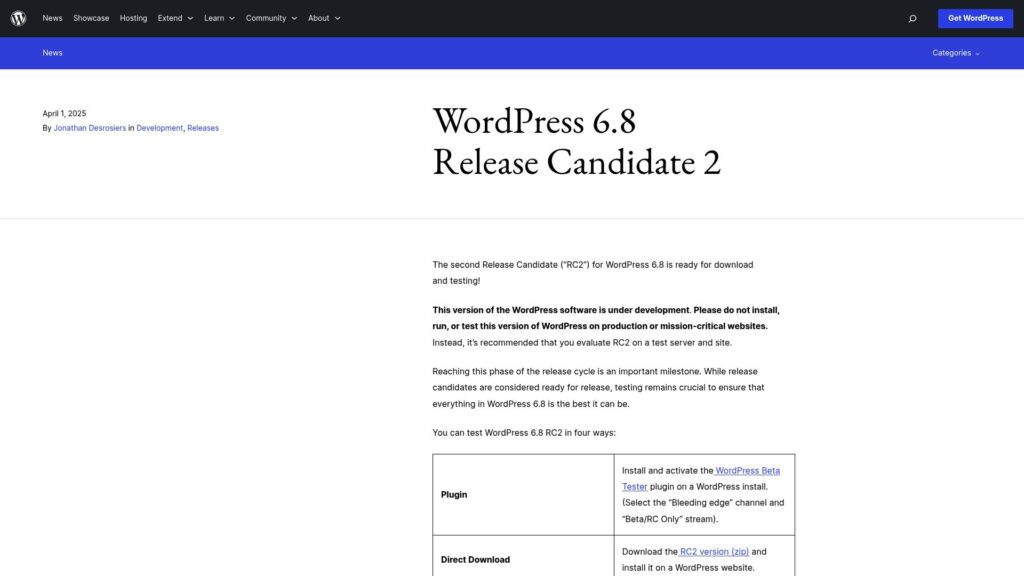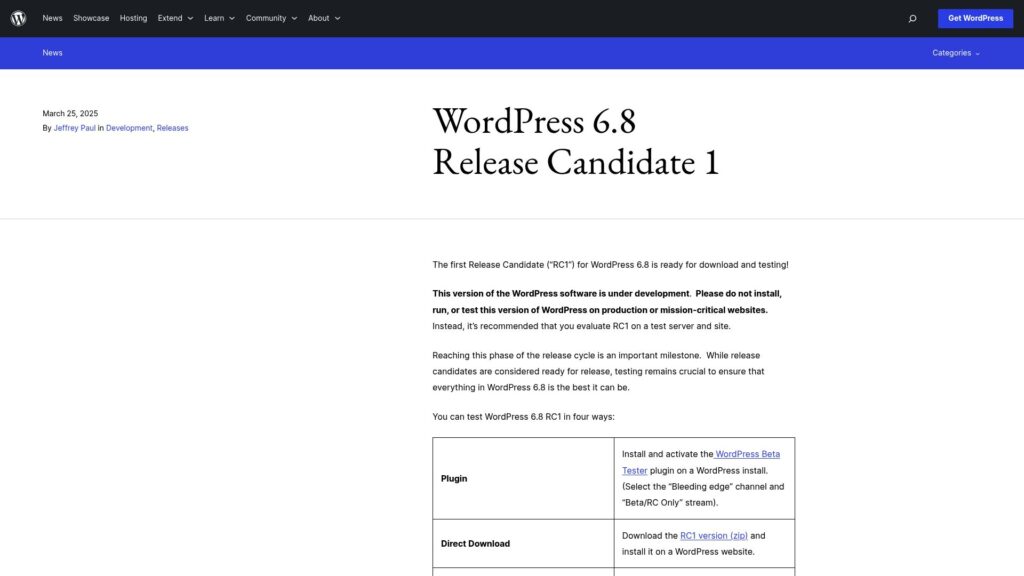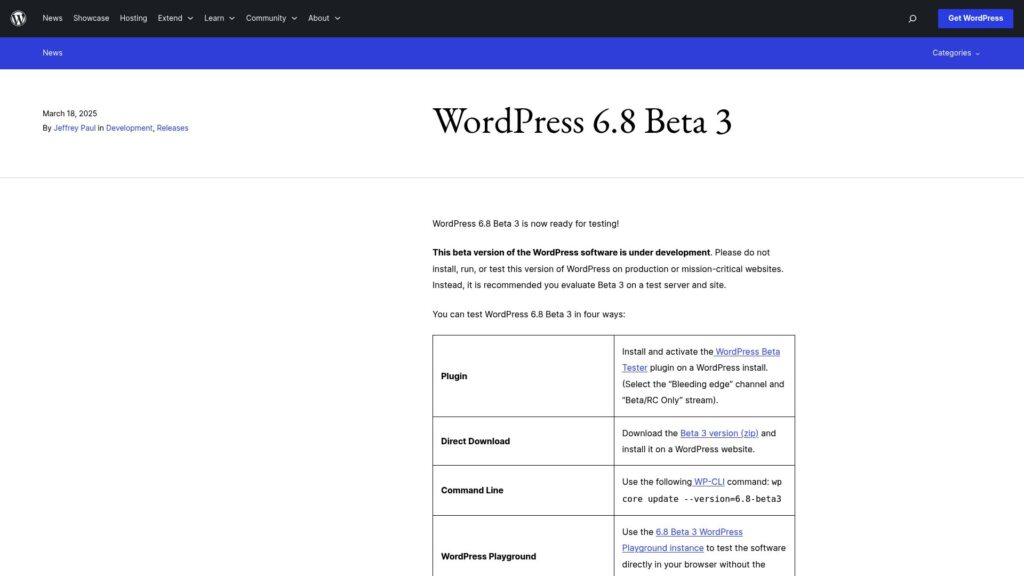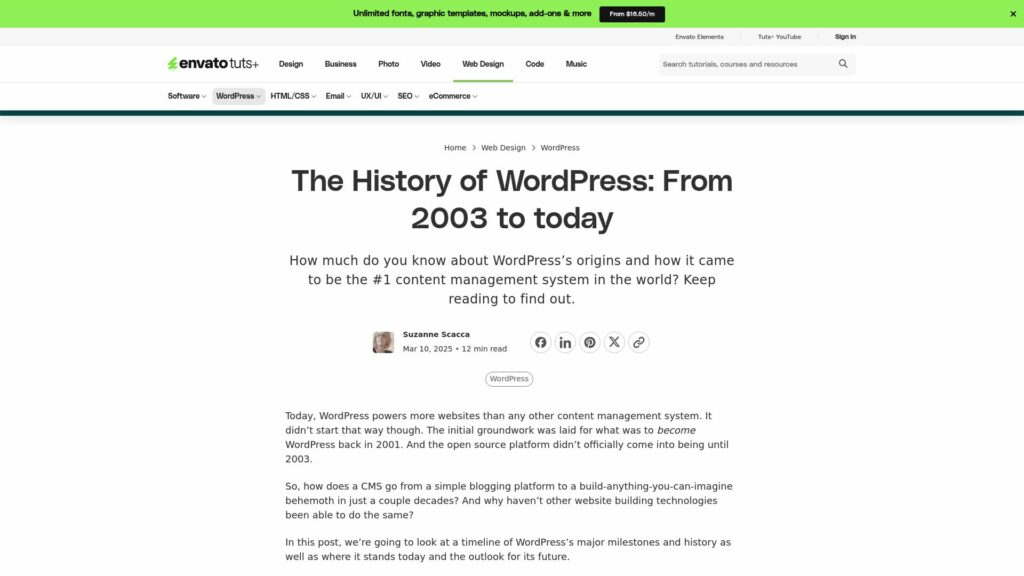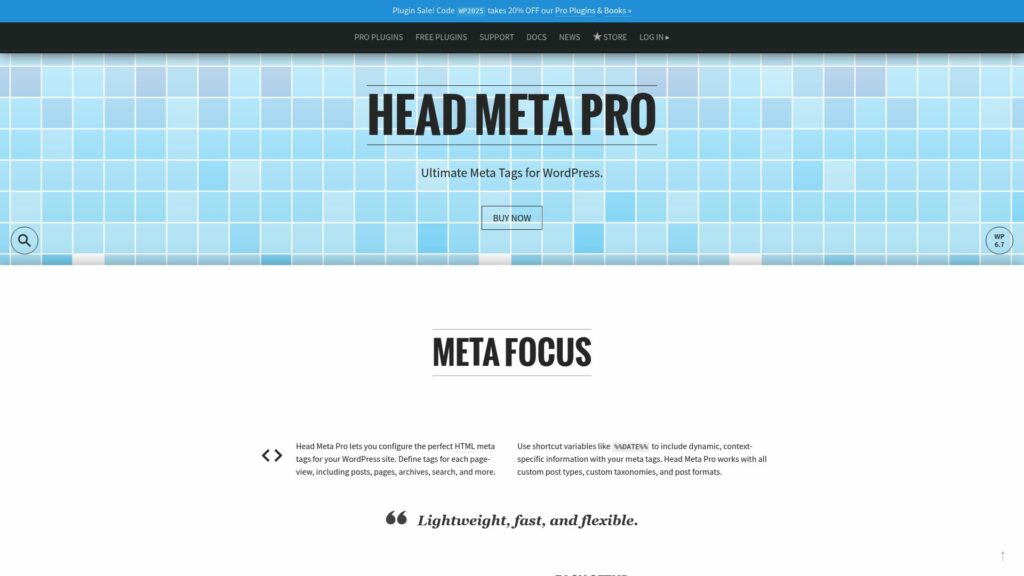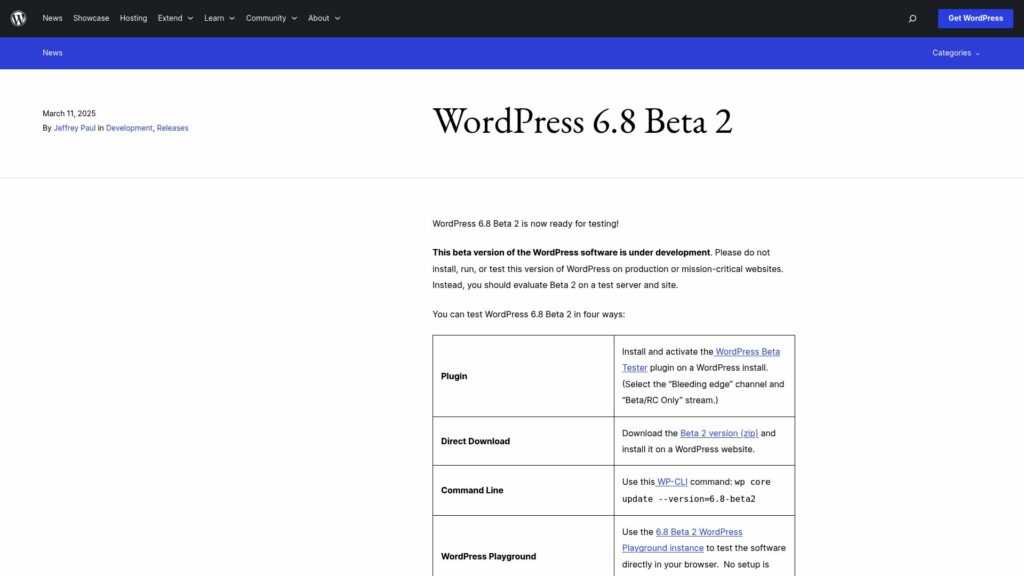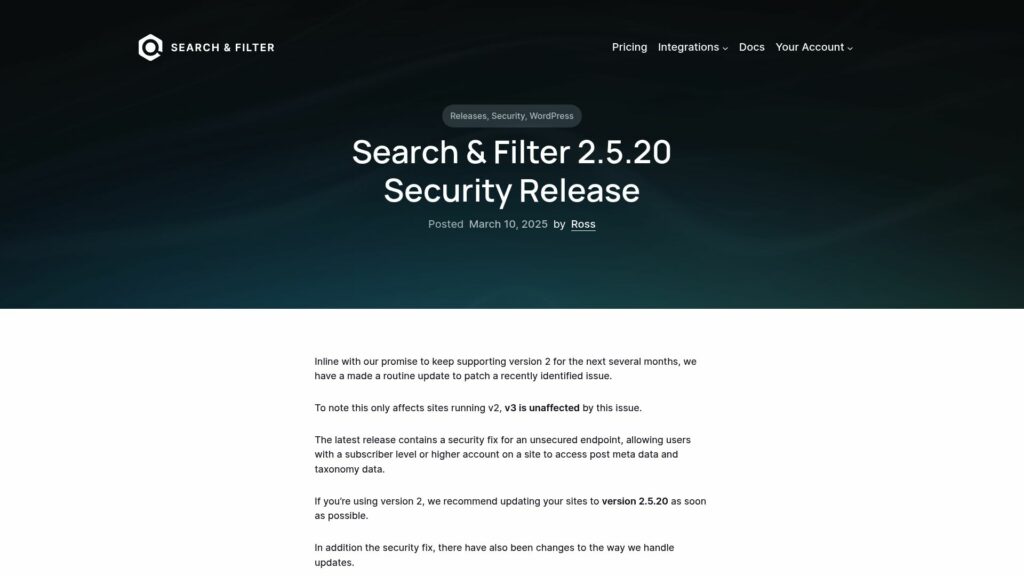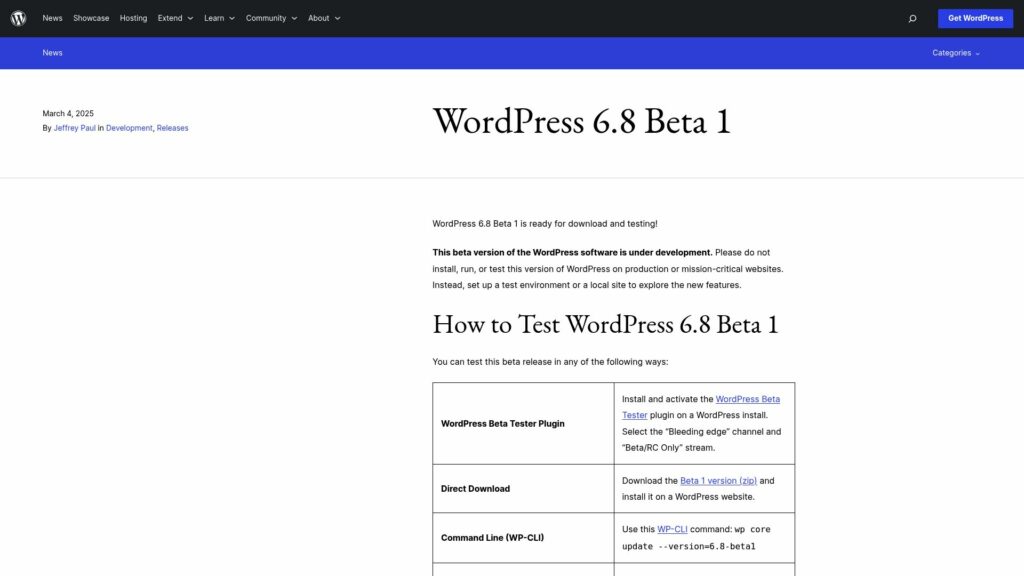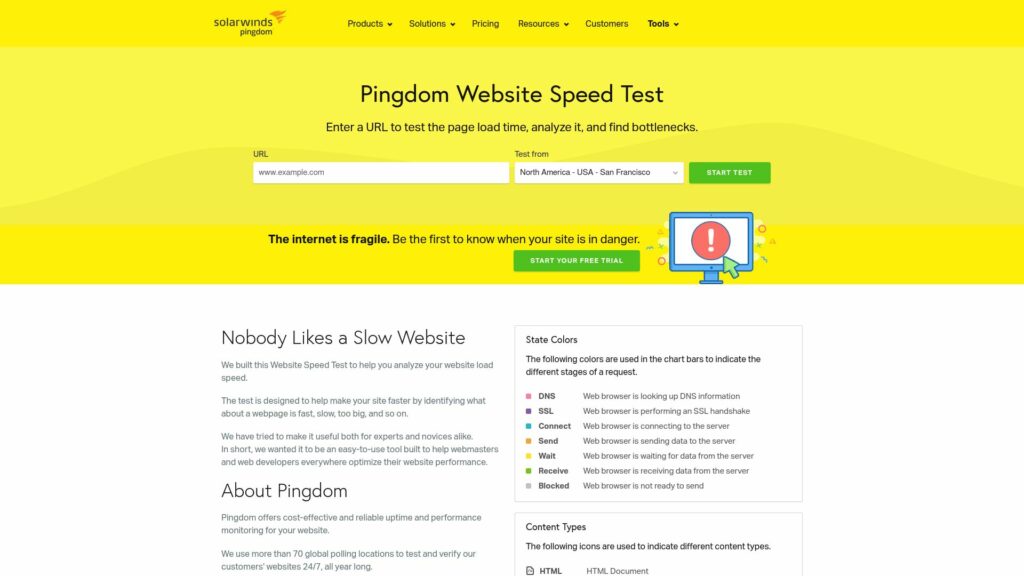WordPress 6.8 Release Candidate 2
Release Candidate 2 (RC2) for WordPress 6.8 is available for testing. Do not install it on production sites; use a test server instead. The release is targeted for April 15, 2025. Testing can be done via the WordPress Beta Tester plugin, direct download, command line, or WordPress Playground. Contributions in testing, vulnerability reporting, theme/plugin updates, and translations are encouraged. A haiku expresses the anticipation of bug squashing before the release.
https://wordpress.org/news/2025/04/wordpress-6-8-release-candidate-2/
